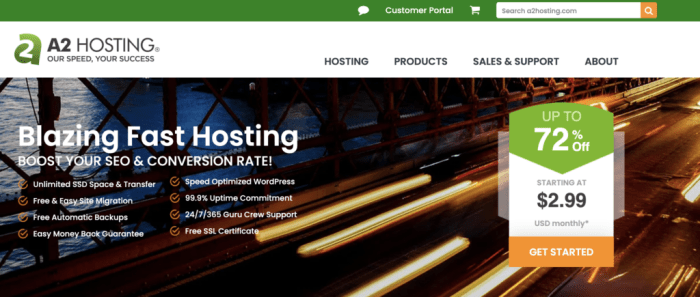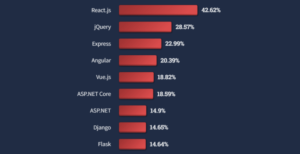
Cheap web hosting with good performance is an enticing proposition for those looking to establish an online presence without breaking the bank. With numerous options available, it can be challenging to find a service that balances affordability with reliability. This overview will guide you through essential factors to consider, from understanding different hosting types to tips for enhancing your site’s performance on a budget.
We’ll explore how shared, VPS, and dedicated hosting can influence your website’s speed and uptime, along with practical strategies for optimizing performance without escalating costs. By the end, you’ll be equipped with the knowledge to make an informed choice that supports your online goals.
Understanding Cheap Web Hosting Options

When it comes to selecting a cheap web hosting service, the options can seem overwhelming. However, understanding the key factors that contribute to good performance can make the decision-making process much easier. Performance is not just about speed; it also encompasses reliability, customer support, and the types of hosting available. This guide will explore various cheap hosting options, helping you make an informed choice tailored to your needs.
Key Performance Factors in Cheap Web Hosting
Several key factors play a crucial role in the performance of cheap web hosting services. These factors include server speed, bandwidth, and the type of storage used.
- Server Speed: Faster servers provide quicker load times for your website, which is essential for user experience and . A good hosting provider should offer SSD (Solid State Drive) storage which is significantly faster than traditional HDDs.
- Bandwidth: Understanding bandwidth limits is vital. While shared hosting may offer lower prices, it often comes with strict bandwidth limits. Ensure the plan can accommodate your expected traffic without additional charges.
- Scalability: The ability to upgrade as your needs grow is important. Some budget hosts offer limited scalability, which could impede future growth.
Shared vs. VPS vs. Dedicated Hosting Services
The three primary types of hosting services—shared, VPS (Virtual Private Server), and dedicated hosting—each come with their own advantages and disadvantages that can impact overall performance and cost.
- Shared Hosting: This is the most affordable option, where multiple websites share the same server resources. While it’s budget-friendly, the performance can suffer during high traffic periods as resources are shared among users. Ideal for small websites or personal blogs.
- VPS Hosting: VPS balances cost and performance. It provides dedicated portions of server resources, which means better performance than shared hosting and more control over your environment. It’s suitable for growing businesses or websites with moderate traffic.
- Dedicated Hosting: With dedicated hosting, you have an entire server to yourself. This option ensures optimal performance and security but at a higher price point. It’s perfect for high-traffic websites or those that require significant resources.
Importance of Uptime and Reliability Metrics
Uptime and reliability are critical metrics to consider when choosing a web host. Uptime refers to the amount of time your website is operational and accessible to users.
Good hosting providers should guarantee 99.9% uptime, which translates to minimal downtime for site maintenance or outages.
In addition to uptime, consider these reliability metrics:
- Response Time: A quick server response time enhances user experience. Look for hosts that offer average response times below 200 milliseconds.
- Technical Support: Reliable customer support is essential. Check if the hosting provider offers 24/7 support via multiple channels (chat, email, phone).
- Backup Solutions: Regular backups are crucial for data recovery in case of failures. Ensure your hosting plan includes automated backups to safeguard your content.
By understanding these factors, you can navigate the landscape of cheap web hosting options more effectively, ensuring you choose a plan that best suits your needs while maintaining good performance.
Enhancing Website Performance on a Budget

Optimizing website performance is crucial for user experience and search engine rankings, especially when working with a limited budget. Fortunately, there are several strategies that can help improve site speed and overall performance without breaking the bank. This guide will explore effective methods that you can implement to ensure your website runs smoothly while keeping costs low.
Utilizing Content Delivery Networks
A Content Delivery Network (CDN) is a system of distributed servers that deliver web content to users based on their geographic location. By caching content closer to the user, CDNs significantly reduce loading times. Implementing a CDN can be a cost-effective way to enhance website performance, especially for sites with a global audience.The benefits of using a CDN include:
- Improved Load Times: By serving cached content from a server located closer to the user, websites load faster, leading to a better user experience.
- Scalability: CDNs are designed to handle traffic spikes, ensuring that your website remains accessible even during peak times.
- Reduced Bandwidth Costs: Since CDNs cache and serve content, they can help minimize the amount of data that your hosting server needs to handle, which can lower bandwidth costs.
- Enhanced Security: Many CDNs offer security features such as DDoS protection and secure sockets layer (SSL) encryption, helping to keep your website safe.
Choosing Performance-Friendly Themes and Plugins
Selecting the right themes and plugins is essential in optimizing website performance, especially on budget hosting. Lightweight themes and well-coded plugins can make a significant difference in page load times.When choosing themes, consider the following:
- Lightweight Design: Opt for themes that are minimal and optimized for speed rather than those packed with features that can slow down your site.
- Responsive Layout: Ensure that the theme is mobile-friendly, as this not only enhances performance but also improves search engine rankings.
- Regular Updates: Choose themes that are regularly updated and supported by the developer to ensure compatibility with the latest web standards.
In terms of plugins, keep these tips in mind:
- Limit the Number of Plugins: Only install the plugins that are absolutely necessary, as too many can lead to slower loading times.
- Choose Quality Over Quantity: Look for plugins that are highly rated and have been proven to enhance performance without adding bloat.
- Use Performance Optimization Plugins: Consider using caching plugins that help speed up your site by storing static versions of your pages.
“Site speed is a crucial factor for both user experience and ; every millisecond counts.”
Effective Online Marketing Strategies for Budget-Conscious Users
In today’s digital landscape, marketing effectively on a budget is essential, especially for those utilizing cheap web hosting services. Understanding how to leverage various online marketing strategies can significantly impact visibility, traffic, and ultimately, conversion rates for businesses operating within financial constraints. Here, we will explore the implications of Search Engine Marketing, the significance of social media, and the creative use of video marketing.
Impact of Search Engine Marketing on Cheap Web Hosting Businesses
Search Engine Marketing (SEM) is a powerful tool for budget-conscious businesses aiming to compete in crowded online spaces. SEM, which includes pay-per-click (PPC) advertising and search engine optimization (), allows businesses to increase their visibility on search engines like Google. When effectively utilized, SEM can drive targeted traffic to websites hosted on affordable platforms. By optimizing content for relevant s, businesses can improve their organic search rankings, resulting in increased visibility without incurring high costs.
Moreover, running targeted PPC campaigns can yield quick results, allowing for effective budget management. A notable example is the case of a small online retail store that used Google Ads to promote its offerings; within a few months, the store saw a 50% increase in website traffic while spending only $200 per month on ads.
Role of Social Media in Promoting Websites on Affordable Platforms
Social media platforms provide an accessible means for cheap web hosting businesses to enhance their online presence. Engaging with users on platforms like Facebook, Instagram, and Twitter can lead to organic growth and brand loyalty. Creating shareable content and actively participating in discussions relevant to the business can help build a community around the brand. Additionally, social media advertising offers budget-friendly options to reach a wider audience.
Businesses can set specific budgets for their campaigns, ensuring they do not overspend while maximizing engagement. An effective strategy includes regularly posting engaging content, responding to comments, and utilizing targeted ads to reach specific demographics. For instance, a local restaurant using Facebook ads to promote a special event could see increased reservations with minimal investment.
Using Video Marketing to Increase Engagement Without High Costs
Video marketing is an impactful method for increasing engagement and can be executed on a budget. Businesses can create short, informative videos that highlight products, services, or customer testimonials without requiring extensive resources. Utilizing free or low-cost tools, businesses can produce quality videos that resonate with their audience. Platforms like TikTok and Instagram Reels provide an excellent opportunity for reaching potential customers through creative, bite-sized content.
To effectively engage viewers, videos should convey clear, concise messages and integrate calls-to-action prompting viewers to visit the website. For example, a small e-commerce business can create a video showcasing how to use their products, leading to a higher likelihood of conversion. In summary, by implementing effective SEM practices, leveraging social media platforms, and utilizing video marketing, budget-conscious users can significantly enhance their online marketing efforts without breaking the bank.
Ultimate Conclusion
In conclusion, navigating the world of cheap web hosting with good performance doesn’t have to be daunting. By understanding the different hosting options and implementing performance-enhancing strategies, you can create an efficient online presence that meets your budgetary constraints. Remember, the right choice in hosting can set the foundation for your website’s success, so take the time to evaluate your options and invest wisely.
Essential Questionnaire
What are the main factors affecting web hosting performance?
Key factors include server speed, uptime reliability, support quality, and the type of hosting plan you choose.
Is shared hosting suitable for small businesses?
Yes, shared hosting is often a good starting point for small businesses, but performance may vary depending on traffic.
How can I improve my website’s loading speed?
Utilizing a CDN, optimizing images, and minimizing plugins are effective ways to enhance loading speed.
What is a VPS hosting?
VPS (Virtual Private Server) hosting provides dedicated resources within a shared server environment, offering better performance than shared hosting.
Can I use WordPress on cheap hosting plans?
Yes, many cheap hosting services support WordPress, but ensure they meet the necessary performance requirements for optimal operation.





